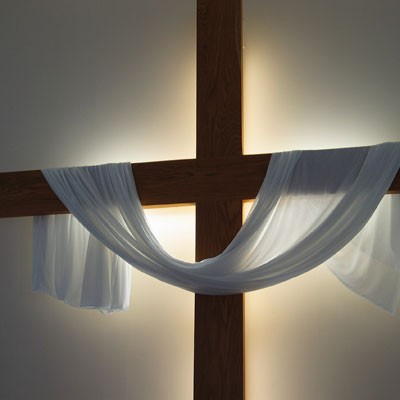“A church is a group of believers in Christ who meet for biblical worship, learning and mission.”
Important explanations:
- A church: Sometimes the Greek word translated “church” (EKKLESIA) refers to the universal church (all born again believers), but more commonly it refers to a local church, which is our meaning (1 Pet 2:9, 1 Cor 1:2).
- is a group of believers: To be a true believer one must be “born again” (John 3:7). This distinguishes the true church from groups and cults that can wrongly label themselves a “church.”
- who meet for biblical worship: Usually this means meeting at least weekly to practice singing, prayer, the Ordinances, exhorting and encouraging each other, giving, exercising spiritual gifts and other forms of worship. The goal of this worship is to glorify God. Biblical worship also seeks to fulfill the Greatest Commandments: “‘Love the Lord your God with all your heart and with all your soul and with all your mind.’ This is the first and greatest commandment. And the second is like it: ‘Love your neighbor as yourself.’ All the Law and the Prophets hang on these two commandments” (Matthew 22:37-40).
- learning: Each church is to be coordinated and led by godly and gifted leaders. These leaders are commonly called “elders” (Greek PRESBUTEROS) or “shepherds” (POIMEN). A third Greek word used of the same office is EPISCOPOS which signifies managing or overseeing the manpower, money, gifts of the Spirit and other resources for the good of the church. Other names for church leadership gifts and offices are also mentioned in the New Testament (Ephesians 4:11-13 “apostles, prophets, evangelists, pastors, teachers;” Romans 12:4-8). Regardless of their office and gifting, it is clear that spiritual maturity and character should be the hallmarks of whoever is leading the church (1 Timothy 3; Titus 1). The term “elder” is always plural except for two times when it refers to the office of elder. It wasn’t until the second century that some churches had a single elder/shepherd.1 “The consistent New Testament pattern is a plurality of elders.2” While not all churches in Bible times paid their professional elders/shepherds enough to live on and sometimes leaders like Paul had to become “tentmakers” by earning their living in other ways, a church is charged with adequate compensation of its staff elders/shepherds (1 Timothy 5:17-18; 1 Corinthians 9:14b). These leaders must communicate the Word and lead the congregation. Shepherds/elders, like Timothy, must “be devoted to the public reading of Scripture, to preaching and to teaching” (1 Timothy
1 Robert Saucy, The Church in God’s Program (Chicago: Moody, 1972), 148.
2 Wayne Grudem, Systematic Theology (Grand Rapids: Zondervan, 1994), 913.
4:13). Typically there is a primary teaching and leading shepherd/elder (1 Tim 5:17) who leads a team of other lay and/or professional elders/shepherds who are “able to teach” (1 Tim 3:2) but who handle other ministry responsibilities and assist in leadership (Hebrews 13:17, 1 Thes. 5:12-13). They provide advice, partnership and accountability for each other. Sometimes there may be a team of primary teachers, as in the Antioch church (Acts 13:1). Part of the leadership role is to provide protection for the church through the correction of church discipline, (Matthew 18:15-17; 1 Cor 5:4-7, 11-13; 2 Tim 4:2; Titus 2:15, 3:10; 1 Peter 5:2).
- and mission: We glorify God by fulfilling Jesus’ Great Commission. Every believer and every church should “…go and make disciples…” (Matthew 28:19-20). Thus, the church’s objective is to spread to all people the joy of knowing and serving Christ. In order to accomplish this, the pattern of Acts is to go from town to town, lead people to Jesus and plant churches where believers become mature disciples who multiply Christians and churches.
Notice what is not included in this definition: a church building, a choir, a denominational affiliation, stained glass, a traditional Sunday School program, a Sunday bulletin, incorporation through a constitution and by-laws. While these might prove helpful, they are not integral to a BIBLICAL definition of church.
While some try to over-complicate what a local church is, others try to over-simplify by defining it as only “the presence of Christ” or “where two or three are gathered in my name.” These over-simplifications fail to include the FULL biblical revelation as explained above.




0 Comments